If you are considering a heat pump for your HVAC system, or already own one, it would be wise to also know about heat pump problems. The idea of having one device that does both cooling and heating is quite enticing, but it might also be possible to have issues of both a heating and cooling system on once device. Therefore, it would be interesting to know how things might go wrong, and how would heat pump troubleshooting be.
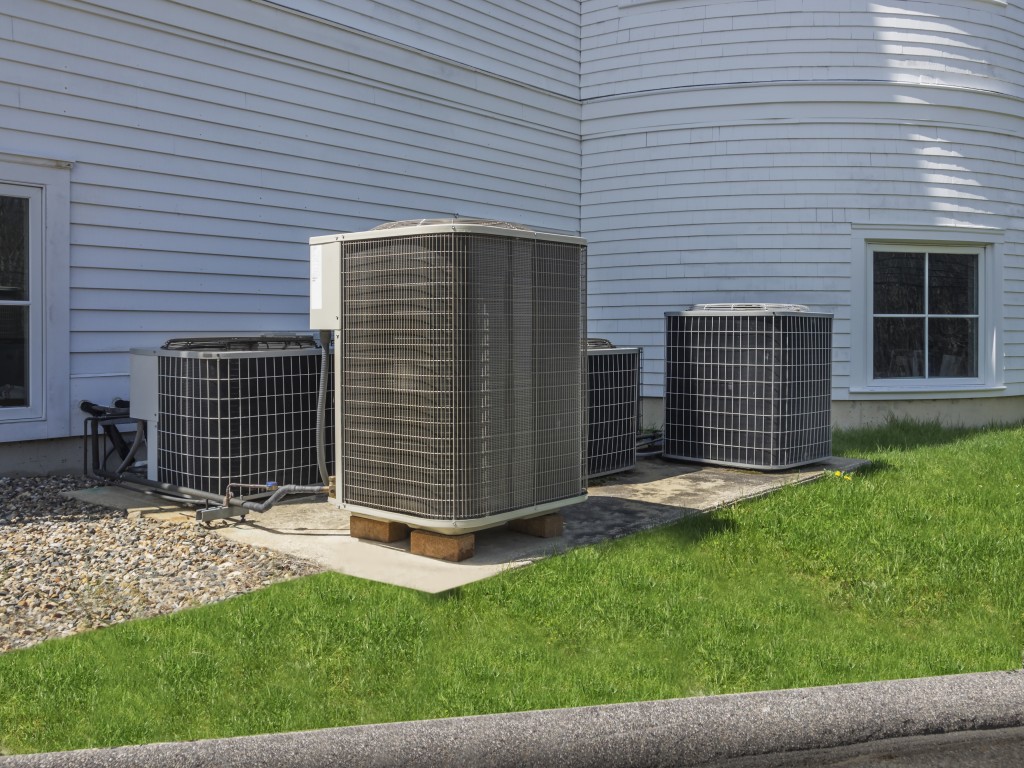
You can easily find what you need for your HVAC requirements here at Linquip, and here you will also learn what you need to know about heat pump problems, as well as ways to troubleshoot heat pump.
Heat Pump not Starting
A heat pump that does not start is most likely suffering from some sort of power loss, thermostat issue, or broken starting capacitor, which are some of possible heat pump problems. Let us analyze these cases further.
Heat pump troubleshooting of power loss
You may first check if the position of all breakers is correct and non of them are tripped. If you made some changes and the problem kept coming back, then you need to ask for some professional help.
Heat pump troubleshooting of thermostat issues
Another heat pump problems when it does not turn on is that there might be some miscalibration with your thermostat. This problem results in incorrect reading of the temperature. In addition, this could be due to a miscommunication between the thermostat and the heat pump caused by some electrical problem. These problems with the thermostat are to be handled by a professional.
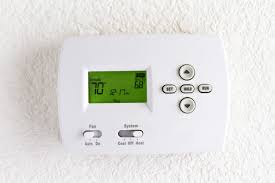
Heat pump troubleshooting of broken capacitor
Well, if your capacitor is broken, you must be able to hear some very low volume clicking noise as the heat pump attempts to start. You should consult some professional at this point to replace this component as it is the device that transmits the electrical charge necessary for starting the motors.
Heat Pump not Heating
One of the possible heat pump problems is its inability of heating. When this happens there are some issues to put the blame on:
- The reversing valve might be broken, which means the pump is stuck in the cooling mode. This needs to be solved by a professional.
- There might be a problem with your thermostat due to incorrect temperature reading or miscommunication with the heat pump system. You will need to ask a professional to solve this issue.
- The refrigerant charge might be low due to some leakage in the lines which makes bringing enough heat to the inside environment impossible. This problem can be solved by getting help from a professional.
- There might be debris, snow, etc. blocking the airflow to the unit, which causes heat transfer between the refrigerant and the outside air. This problem is easily solved by clearing the surrounding area of the heat pump off of those blocking agents.
- When the airflow to the compressor is obstructed by some debris or dirt buildup in the air filters, the inside air can no longer be heated. You can check your filter to see if this is the case, and change it.
Heat Pump not Cooling
Another one of heat pump problems is when it does not cool when you want it to. The reasons for this problem might one or two from the list below, which are quite similar to the ones mentioned for heat pump problems regarding heating.
- Reversing valve failure could be a reason for the cooling problems of the heat pump. This could be detected when you feel hot air pushed out of the indoor unit instead of cold. A professional can help you solve this problem.
- Just like the case of heating problems, thermostat issues, stemming from bad temperature readings and system miscommunications, could lead to cooling problems of the system, for which you need to ask for professional help.
- There might be significant refrigerant loss due to leakage, so you need to have a technician fix the problem.
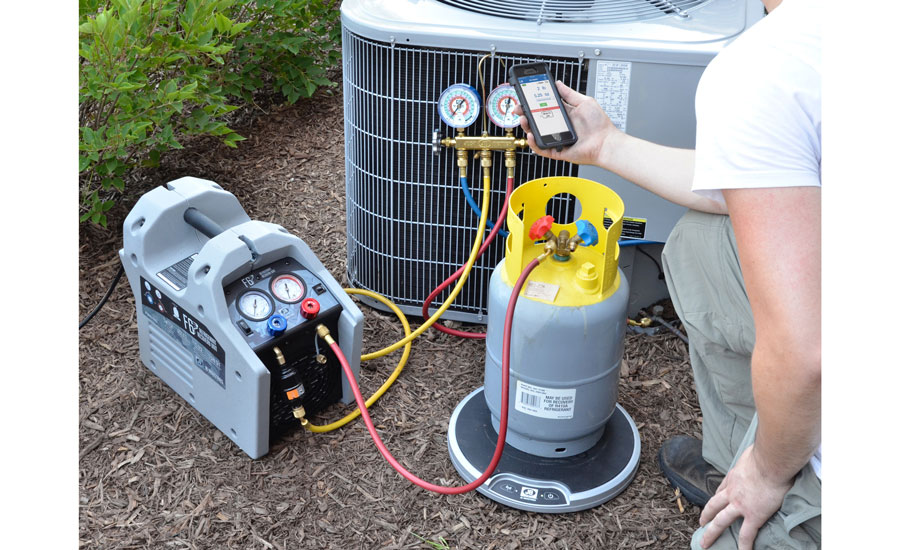
- Airflow blockage caused by debris or other agents would lead to inability of the system to deliver cool air. You can easily clean the component or clear the surroundings of the unit to address this issue.
Heat Pump Frozen in Winter
Freezing of a heat pump system in Winter is normal to some level, but there are situations when it is considered as one of the possible heat pump problems.
Since the pump tries to absorb heat from the cold outside air, it seems normal to see some frost on the sides, and it would not cause any issues due to the fact that the system is most likely scheduled to initiate some defrosting protocol some time.
When there is a lot of ice or snow on top of the unit it would be troublesome for the coils, as the heat transfer between the refrigerant and the outside environment would be compromised at this point, disrupting proper performance of the heat pump.
You should make sure this problem is solved as soon as possible in order to protect the compressor or the fan blades against failure, which might lead to irreversible damages to the entire heat pump system.
Troubleshooting Heat Pump Winter Icing
The following issues could be causing icing of your heat pump during the winter, which is one of the possible heat pump problems. So, you better turn off your device when you spot such an issue and check to see how you can address your heat pump icing in the winter.
- The defrosting protocol of heat pumps includes switching to air conditioning mode periodically in order to get some of the inside air heat up the outdoor coils. The heat would melt the light frost or icing on the unit. Now, if this defrosting is faulty for some reason, ice will quickly build up, which is harmful. The issue of improper defrosting could be caused by some problem with the reversing valve, which makes switching between cooling and heating mode possible, or issues with the sensors, controllers, or relays.
- Accumulation of snow around the outdoor unit could disrupt the flow of air and eventually lead to its blockage, which by itself encouragees icing of the unit.
- If due to leakage in the refrigerant lines, its charge reaches very low levels, the heat pump would not be able to get enough heat from the inside to the coils to defrost them. Of course this problem can be detected by inability of the unit to bring the inside temperature to its set level.
- The outside fan is responsible to flow the air through the coils and when it is dead for some reason, heat cannot be rejected from the unit leading to more icing.
- There is also a possibility for some water leaking onto the unit, for instance from a leaky gutter, which results in ice layer formation on top of the unit.
When you want to de-ice your heat pump by yourself, you may use water for melting the ice, but be ware not to ever use object, especially hard, sharp, or pointy ones to break the ice off the coils. It is because they are fragile and easily get damaged, which is not something you want.
In order to solve the winter icing issue of your heat pump, it is best to have some professional check your system.
Heat Pump Frozen in Summer
Some of the reasons that cause a heat pump freeze during the summer, which is one of heat pump problems, are in a way similar to those of Winter freezing. It is advised not to operate the device under such circumstances before diagnosing and alleviating the cause of the problem by a professional.
Constant Running of the Heat Pump
During Winter
Heat pumps cannot heat up a place as fast as furnaces; therefore, they need to be running for longer periods of time or even run constantly. However, if the set temperature on the thermostat is not a challenging one, and the pump is still running all the time, you need to be suspicious of having one of the heat pump problems being constant running during Winter.
Well, the first thing to consider here is to make sure that the heating capacity of the unit is sufficient for the volume of the space it is heating. If the unit is undersized, then it is not a surprise to see it run constantly. Then, you need to make sure that there is no problem with the insulation of the heated space, where significant heat can escape through.
If all the basic conditions were met, you might suspect the source of the problem to be dirty equipment from long time of no maintenance, compressor issues, refrigerant loss, or frozen outdoor unit.
During Summer
Your heat pump will run constantly if it is undersized for cooling your space, or when there is a spot where cooled air can escape the space. If not the case, you would be facing one of heat pump problems due to an issue with your refrigerant charge, cleanliness of the coils and filters, or the compressor.
Noise Might Be a Sign for One of Heat Pump Problems
Some sort of noise is always heard when you start your heat pump or turn it off. There is also a humming noise during its operation. Nonetheless, there are situations when noise is considered as one of heat pump problems:
- Low volume constant humming while the fan motor is off indicating a problem with the fan or even the compressor
- Vibration noise due to something being loose within the HVAC system
- Whistling due to clogging of air passages
- Squealing noise heard outside is a sign of a bearing problem in the condenser fan.
- Squealing noise heard indoors is a sign of a bearing problem in the blower motor.
- Squealing and clanking heard together is when a pulley on a belt-driven system is worn or loose, or it might be a sign of compressor failure.
- If a buzzing noise is heard even after the start of the system, it is a sign of problematic capacitor or start relay.
- Rattling noise is a sign of a hard-starting issue, but could also be a sign of compressor failure.
- A high-pitched screaming noise is a sign of high refrigerant pressure. This issue is quite dangerous for the system and could lead to compressor explosion. Therefore, you need to shut down the system, and have it inspected by a professional.
- At what temperature is a heat pump not effective?
Temperatures below 25 to 30 degrees Fahrenheit render the heat pump ineffective. Read more Here.
- Should I turn my heat pump off in extreme cold?
It is better to have an integrated control system to decide whether the heat pump or a supplementary heating system should run during such weather conditions. Read more here.
- Why does my heat pump stop when it’s cold?
The heat pump needs to extract the heat from outside and reject to inside, and when the temperature is very low, there is not much heat available to be transferred inside, so it would be stopped by the control system.
- At what temperature should I set my heat pump in the winter?
An optimal operation of heat pump would be when the thermostat is set between 65 to 75 degrees Fahrenheit, but it is suggested to set the thermostat on 68 degree Fahrenheit is the optimum temperature for comfort and energy consumption.
You can see this video of how to solve some the common heat pump problems Here.
Buy Equipment or Ask for a Service
By using Linquip RFQ Service, you can expect to receive quotations from various suppliers across multiple industries and regions.
Click Here to Request a Quotation From Suppliers and Service Providers
Read More On Linquip
- Heat Pumps vs Air Conditioners: The Everlasting Battle
- Installing an Air Source Heat Pump: Everything You Need to Know
- What Are Air Source Heat Pumps? A Complete Guide
- At What Temperature is a Heat Pump Not Effective? Easy Answer
- What Is a Heat Pump Reversing Valve?
- The Complete Guide To Air Source Heat Pumps Disadvantages

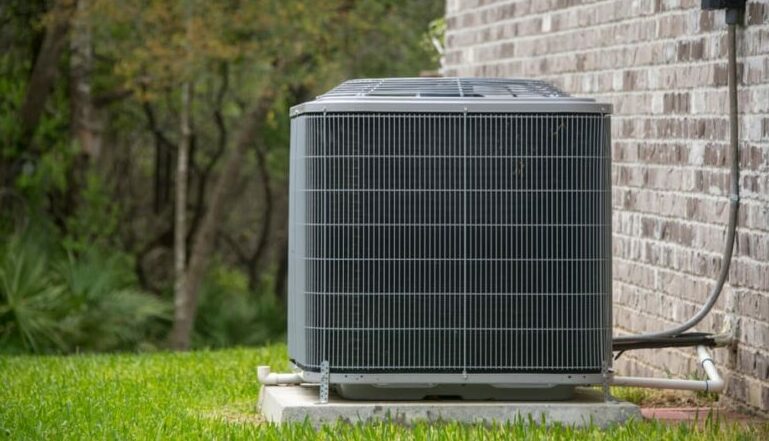

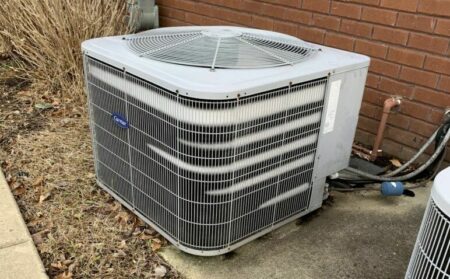


Why would my heat
pump keep tripping the breaker